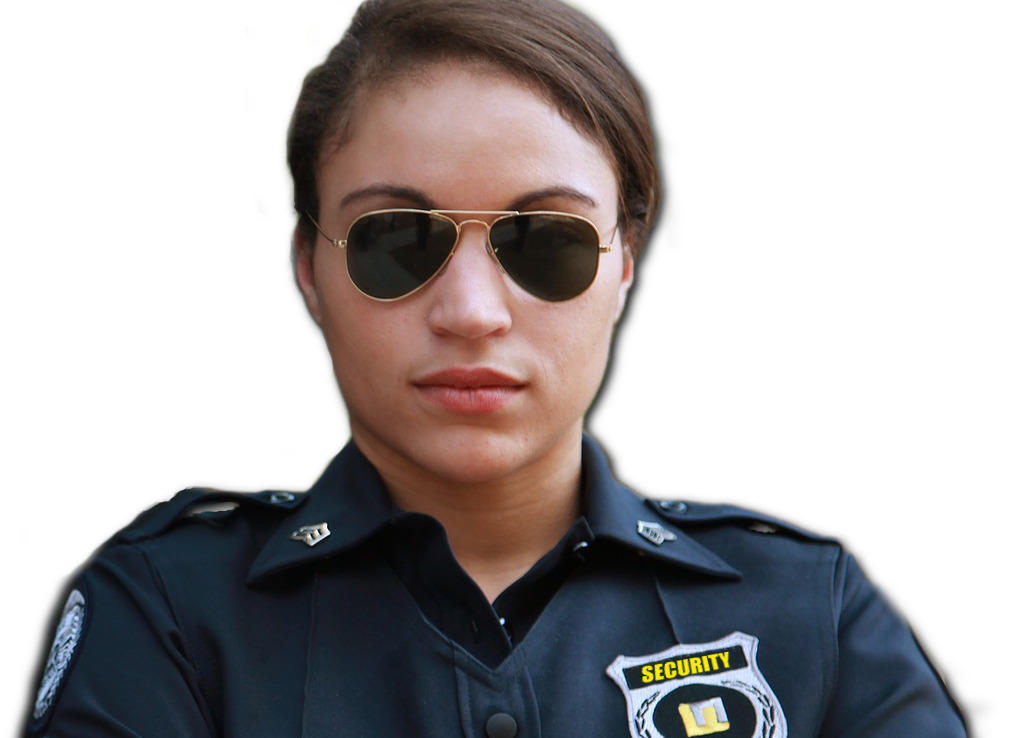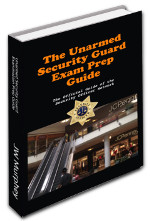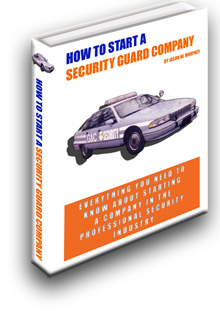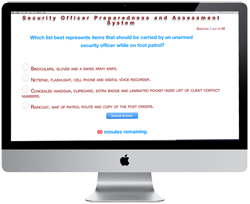 Practice Test
Training
Regulations
Security FAQs
Member Support
Sign In
Join
Practice Test
Training
Regulations
Security FAQs
Member Support
Sign In
Join

Most Oklahoma security officers must receive licensing by Oklahoma’s law enforcement and private security licensing body.
Located in the small city of Ada, the Council on Law Enforcement Education and Training, known as CLEET, is established by Title 70 of Oklahoma law. Title 70 Section 3311 creates CLEET and establishes the method by which members of the board are appointed. CLEET licenses hundreds if not thousands of Oklahoma security and police officers according to its own rules and Title 59 Section 1750.1 of Oklahoma law. CLEET establishes the rules prospective officers must follow in order to obtain a license. It also sits in judgment of the officer should he commit a violation of CLEET rules and establishes the procedures by which the officer renews his license. In Oklahoma, security professionals commonly refer to their license as a “Cleet License".
CLEET is located at, CLEET, Private Security Division, 2401 Egypt Road, Ada, Oklahoma, 74820-0669.
Every Oklahoma security guard should download a copy of the CLEET rules.
Certified police officers are not required to have a private security license to work private security posts. Also exempt are unarmed security officers who are employed as in-house security officers for a single employer.
Oklahoma does have a provisional licensing process. CLEET will grant a conditional license to those who have found employment but have not yet taken the requisite amount of training. A CLEET provisional license lasts for 180 days. In order to qualify for the conditional license an applicant must submit a letter of employment from a licensed employing agency. This letter informs CLEET of the applicant's employment by the agency. CLEET also awards special event licenses which pertain to specific events.
To qualify for licensure the applicant must be a US citizen or legal resident, at least 18 years of age, and must not have been convicted of a felony or a crime involving a moral turpitude offense. The CLEET Council may waive the criminal record consideration in certain instances.
Those applying for licensure as an armed officer must complete a phase IV training course and submit a psychological evaluation. Most of the CLEET authorized training institutions offer phase IV training. Applicants for an armed license must be at least 21 years of age.
Applicants must submit a completed and notarized application, two fingerprint cards with fingerprints taken by the applicant’s local police or county sheriff, background check from local police and sheriff, and either a letter of employment or a bond and certificate of training. A money order, security agency check or cashier’s check containing the required fee must also be submitted with the application.
In addition to licensing officers and agencies CLEET also licenses training programs. In order to meet the training requirements to obtain licensure the guard must receive a certificate of completion from a training program licensed by CLEET. CLEET provides a list of 37 private and public vocational schools which provide authorized training programs. Unarmed applicants must complete a 20 hour phase I course and a 20 hour phase II course. Armed applicants must also complete both of these phases and also a phase IV 32-hour training.
CLEET may waive the training requirement provided the applicant has completed comparable training. CLEET recognizes the training provided to law enforcement and correctional officers as acceptable in lieu of training.
Those who are not employed at the time of the application must provide a bond. Unarmed applicants are required to purchase a bond of at least $5,000 while armed applicants must purchase a $10,000 bond. The cost of the bond should be minimal and can be written by insurance agencies. The application package from CLEET contains a sheet for the bond issuer to complete.
Applicants for unarmed licensure must pay $91 while applications for an armed license need to include a $141 fee. An unarmed officer may upgrade his license to armed status for $50.
Applicants must pass a state examination. This test is administered once a month at the CLEET facility in ADA and at 44 of the vocational centers across Oklahoma. Test takers are advised to check with their nearest career tech center to determine the next sit date for the exam.
Under the authority of Oklahoma law CLEET propagates rules that must be followed by the licensed security officer. It is important for each licensed officer to keep a copy of the private security rules to ensure he remains in compliance with state regulation.
Oklahoma security officers must participate in eight hours of continuing education prior to each three year renewal period. There are a series of eligible courses that are available from CLEET approved schools, college courses and various approved organizations such as the Red Cross and Oklahoma Bar Association. A college course accounts for 15 hours of training while a class from a CLEET approved school counts hour for hour towards the education requirement.
1. Download the rules, read them carefully and become familiar with each one. The security guidelines start at page number 52. These rules provide the officer with an understanding of the licensing process and important guidance as to what will be expected of him once licensed.
2. Secure employment from a licensed Oklahoma security agency. Being employed is not a necessity to apply for a license. But, it is necessary to obtain a conditional license. The conditional license allows the officer to work for up to 180 days without having to complete the training requirements. If the applicant is not employed then he must complete the training and pass the state examination prior to applying for a license. He must also secure the bond described in this article.
3. Complete the application for licensure. The security agency should provide assistance in completing the application. If not yet employed, it will be up to the officer to fill out this application and ensure the data is correctly entered. Fortunately, CLEET includes a useful checklist on the front of the application to help the applicant ensure the information is complete. Also, it is important to remember that the application must contain either a letter of employment or a completed bond page and certificate of completion from an approved school.
4. Don’t forget to get eight hours of continuing education before the next license renewal date. An employing security agency should provide guidance as to how to access the most cost efficient form of continuing education.

SecurityOfficerHQ.com is the exclusive provider of this free 57 page PDF guide. It features just about everything you need to know before taking the exam and includes The Professional Security Officer eCourse. You may get your copy for free right now only at SecurityOfficerHQ.com! Submit your name and email to receive your copy via email or click here to learn more about this guide.

SecurityOfficerHQ.com is the exclusive provider of this free 140 page PDF ebook. Less-comprehensive versions sell for $24, but, for the time being, you may get your copy for free right now only at SecurityOfficerHQ.com! Submit your name and email to receive your copy via email or click here to learn more about the book.

The forty question, free practice exam will test your unarmed security knowledge. It's the perfect test prep for those who must sit an exam before getting licensing.

This free job interview guide is the security officer's must-have resource. Get yours here.
© 2012 - 2026 The Security Officer Network
A Product of the 1918 Media Limited Liability Company
Addr: Thirty North Gould Street 2288
Sheridan, Wyoming 82801
Phone: (307) 461-6079
Red Hirundo Rustica Custom CMS and Testing Engine
Disclosures | Privacy | 307.461.6079